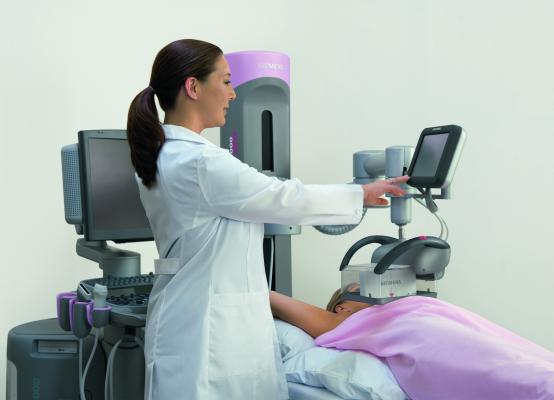
July 11, 2018 — A new commentary appearing in the July issue of Cancer Causes & Control points to evidence that social factors help determine people’s vulnerability to cancer. The commentary, by scientists from the Bloomberg School, also argues that these factors should be considered routinely in studies and risk assessments that bear on clinical care.
"We've been missing opportunities to understand and reduce disparities in breast cancer risk and outcomes," said lead author Lorraine T. Dean, ScD, an assistant professor in the Department of Epidemiology at the Bloomberg School. "Simply put, not enough is being done to understand how race, income level and other social factors tie in to cancer susceptibility."
A 2014 review of over 20 years of National Cancer Institute clinical trials, for example, found that only about 20 percent of the randomized controlled studies reported results stratified by race/ethnicity. In a follow-up analysis of 57 breast cancer observational and randomized controlled trials that were published in 2016, the researchers found that, after excluding those in which the primary focus was disparities, fewer than 5 percent of studies reported findings stratified by race or other socioeconomic factors.
As Dean and colleagues note in their commentary, it should be obvious that in general, neglecting race/ethnicity and other social factors in medical research can mask important drivers of bad outcomes. For example, a recent high-profile study sorting mortality rates by race and socioeconomic status revealed that midlife mortality is increasing among blue-collar whites in the U.S. even though it is declining for the population overall. Those findings drew attention to ongoing increases in suicides and substance-abuse-related deaths for blue-collar whites, and led researchers to zero in on economic despair and social decay as the likely causes.
"A lot of scientists don't want to deal with race or socioeconomic position in their studies because they think those characteristics aren't modifiable," Dean said. "But they can actually help identify factors that are modifiable. You can't change your genes, for example, but we still do genetic studies because they illuminate pathways we can change with medicines or other interventions."
Breast cancers are the principal research focus for Dean and colleagues. They see the potential —and many missed opportunities to date —for research to uncover or at least address social-related risk factors for this set of diseases.
They point out, for example, that standard breast cancer risk assessment tools have not always taken race into account — even though there are significant racial disparities in the risks for certain types of breast cancer as well as breast cancer mortality rates. For many years, a commonly used questionnaire tool for assessing breast cancer risk (now known simply as the Breast Cancer Risk Assessment Tool) was validated only for white women. It tended to underestimate significantly the risks of breast cancers for black women, who have lower rates of mammogram screening and higher rates of breast cancer at younger ages. That error may have kept many black women from participating in cancer-prevention trials of drugs such as tamoxifen.
"The model was revised in 2015 to take race into account, and now estimates black female eligibility for chemoprevention at nearly three times the rate of the original model," said Dean.
Clinical trials and population studies should be powerful tools for uncovering links between social factors and cancer vulnerability, which in turn should lead to better risk reduction and/or treatment strategies. But here too, the necessary information is not routinely gathered.
To address the issue, Dean and her colleagues recommend:
- Increasing education and awareness about the importance of inclusion of social factors in clinical research;
- Adding requirements for data on social factors to journal guidelines for reporting study results; and
- Refining cancer risk assessment tools by including social factors.
"If adopted, these measures would enable more effective design and implementation of interventions," Dean said, "and would help eliminate breast cancer racial and socioeconomic disparities by accounting for the social and environmental contexts in which cancer patients live and are treated."
For more information: www.link.springer.com
Reference


 February 17, 2026
February 17, 2026 









